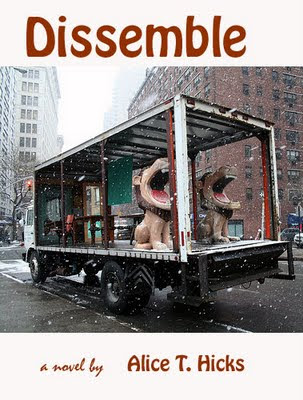
Yeah, OK, Nietzsche--if you say so. But you forgot about entropy. Order inevitably trends back toward chaos.
This has been on my mind a lot lately as I've been painting the upstairs rooms in our house, something I've wanted to do ever since we moved in two years ago. But the chaos of the move was exhausting enough, and the walls were an inoffensive (if muddy) off-white, so the painting got delayed.
Of course, now there's two years' worth of accumulated crap (and dust) that had to be moved out of the way to paint. The prospect of clearing enough space to get a ladder around was way more daunting than the actual painting.
As Jane recently wrote, painting is a bore. I painted houses (interior and exterior) one summer when I was in grad school, and while I'm grateful for the experience--I certainly use the skills I learned there more than those I learned in a lot of other short-term jobs--I was very glad to go back to class in the fall.

It was avocado paint that finally broke me. I was painting an ugly, recycled vanity with some hideous 1970s avocado-green high-gloss lacquer one morning, and just burst into tears. I'd broken up with a long-term boyfriend recently, and suddenly the magnitude of my misery hit me. What was the point of this work? The ugly vanity couldn't be improved with a couple of hideous coats of paint. It should've been kicked to the curb, just like my ex. Needless to say, that was my last day on that job.
Still, I remember the deep satisfaction of other projects, like when a coworker and I spent a week scraping, sanding, cleaning, and priming an old wood-sided bungalow in Clintonville, and the day finally came when we could put the color (pink--yes, pink) on. We did old-school brushwork--no sprayers--so it was slow-going. At the end of the day, we'd gotten about 3/4 of the way through, and decided to finish the rest the following morning.
We'd parked up the street, so had to drive back past the house on the way out. From a distance, we finally got a look at what we'd accomplished--there was only a tiny bit of white primer left exposed in a sea of pink. We whooped in unison.

I get some of that feeling when I paint now. Seeing the transformation in the upstairs rooms has been satisfying, but it's a much briefer feeling, since I then start thinking about how I need to clean before I put the furniture back in place, and retrieve all the things I've stuffed into closets, and do all the other cleaning and organizing I've neglected while I've been painting.
And cynic (or realist?) that I am, I also think about how eventually I'll have to dust the baseboards again, and touch up the paint, and...you get the idea. Entropy.
* Immortal wisdom courtesy of Blazing Saddles.



